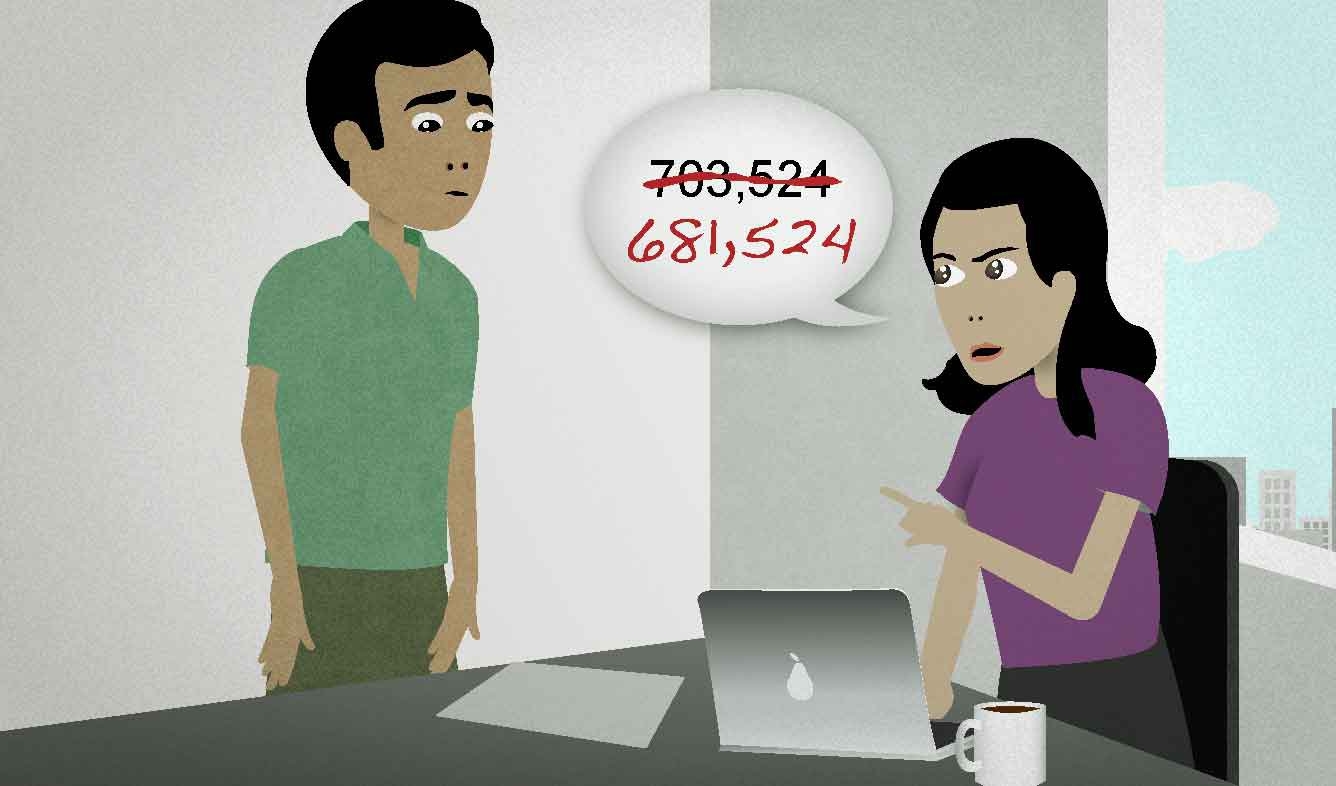“From now on, you need to bring any discrepancies to my attention immediately.”
There was an error in the records showing how much money one client owed your company. One of your employees found out about the problem but didn't tell you about it for a few days. He should have told you about it as soon as he found out, so you yell at him.
From now on, you need to bring any discrepancies to my attention immediately.
Want Video and Sound? Follow us on YouTube

from now on
"From now on" means "starting now and continuing in the future". You use this to talk about doing something differently than before:
I think I paid too much. I'm definitely going to shop around for a better price when I buy a car from now on.
When you tell someone else what to do "from now on", it sounds a little angry or stern. You can speak this way to your employees, your family members, or someone who you have authority over:
From now on, I want you to call me if you're going to be out past ten o'clock. Do you understand me?
From now on, can you check with me before you do something like that?
A softer-sounding (and more formal) phrase for work situations is "going forward":
Please refer any payroll-related questions to Jared going forward.
Some English learners use the expression "from now", but that's incorrect.
You need to (do something)
"You need to ___" is a really strong and direct way of giving someone advice or orders. It's usually used by parents, teachers, and bosses. It's usually used when they're angry or annoyed:
You need to stop talking and pay attention.
You need to get the account manager on the phone and tell him you're sorry, but you made a mistake.
bring (something) to (someone's) attention
"Bringing ___ to ___'s attention" is a formal phrase that means telling someone about something important:
Ms. Tamaki has brought a serious issue to my attention. It seems that some of the students have been leaving school during their lunch break to use drugs and engage in other inappropriate behavior.
If you notice anything that can be improved, please bring it to our attention.
This phrase is mostly used in business and politics.
a discrepancy
A "discrepancy" is a difference that might be a mistake.
For example, if an event is listed in one place with a date of July 16th and in another place as July 17th, that's a discrepancy. You can also have discrepancies in calculations, or in people's descriptions of something that happened.
The word "discrepancy" sounds a little technical or academic.
